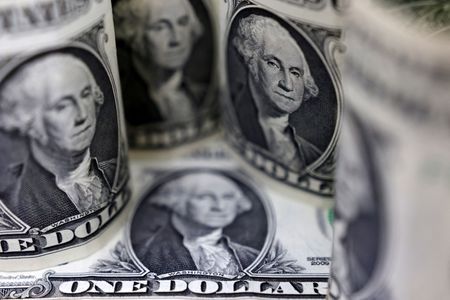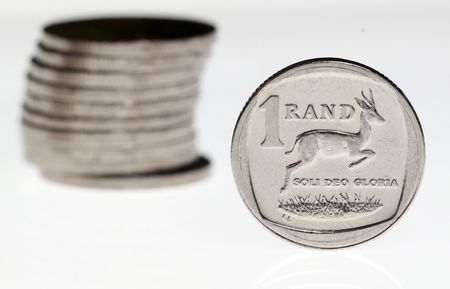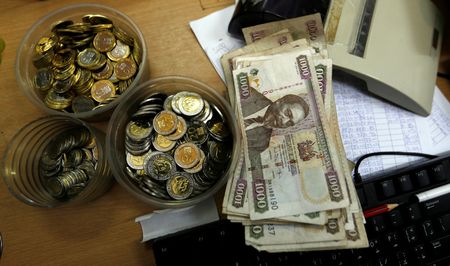By Chibuike Oguh
NEW YORK (Reuters) – The dollar fell broadly on Tuesday on worries that U.S. President Donald Trump’s touted trade deals have yet to materialize, while the euro extended gains after the German parliament elected conservative leader Friedrich Merz as chancellor.
Investors are waiting for details on trade deals the Trump administration has said it is negotiating with other countries, including China. Trump indicated on Sunday that some deals would be announced this week.
“The market is getting nervous that we’re starting to eat away at the schedule since the 90-day tariff reprieve without anything meaningful being announced,” said Eugene Epstein, head of structuring for North America at Moneycorp.
“There’s a lot of good sentiment but because of a distinct lack of formal substance that I’ve seen, I think the market is starting to get uneasy again.”
The dollar was last down 0.86% at 142.445 Japanese yen . The Taiwanese dollar pared gains following a record rally against the greenback amid market disquiet over Trump’s tariffs. The currency was last down 2.6% at 29.931 per dollar.
The Canadian dollar strengthened after Prime Minister Mark Carney bluntly told Trump during a White House visit on Tuesday that Canada would never be for sale. The Canadian dollar strengthened 0.39% versus the greenback to C$1.38 per dollar.
The euro extended gains after Merz secured the votes needed to become German chancellor following a humiliating and unprecedented defeat on the first attempt. The single currency was last up 0.50% to $1.1371.
The Commerce Department reported on Tuesday the U.S. trade deficit widened 14% to a record $140.5 billion in March as businesses boosted imports ahead of Trump’s tariffs.
Against the Swiss franc, the dollar gave up earlier gains to edge down 0.09% to 0.82145 franc. Swiss National Bank Chairman Martin Schlegel said the SNB is ready to intervene in currency markets and cut interest rates even below zero to prevent inflation falling below its price stability target.
Markets are focused on Wednesday’s Federal Reserve policy meeting, in which the U.S. central bank is expected to hold rates steady.
Fed Chairman Jerome Powell is unlikely to provide clear guidance on how the central bank plans to respond to U.S. import tariffs, Macquarie analysts led by Thierry Wizman wrote in an investor note.
“If traders wish to believe that the Fed will come to the rescue of the world tomorrow and assuage the recent rise in policy uncertainty and political uncertainty with a signal of overt ‘dovishness,’ they should think again,” the analysts wrote.
The Bank of England is expected to lower interest rates by a quarter point on Thursday.
Britain’s pound gained 0.61% at $1.33780.
(Reporting by Chibuike Oguh in New York, Rae Wee and Alun John; Additional reporting by Dhara Ranasinghe, Editing by Hugh Lawson, Bernadette Baum, Rod Nickel and Richard Chang)








